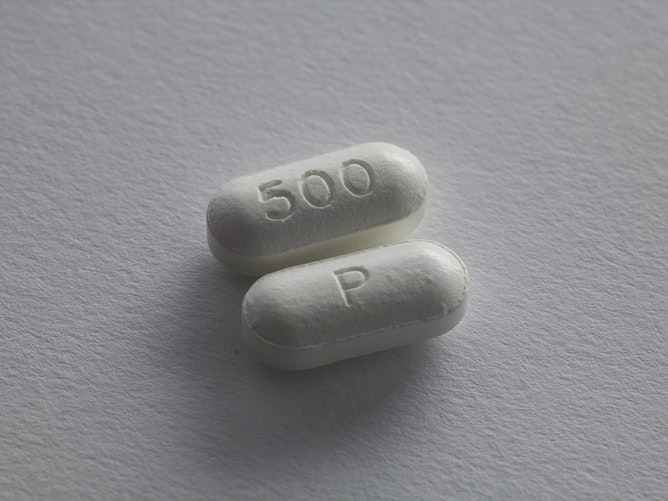How Technology Will Reverse Disease and Add Decades to Your Life Expectancy
 If you look at the technology industry and the rapid advances that have been made over the past few decades, you will realize just how stalled the medical industry is. The primary cause for the stagnation of medical discoveries and advances, is that the industry has traditionally been controlled by big companies and doctors trying to protect their own interests by withholding data. Think about it, insulin was discovered in 1921 (its creation allows diabetics to live), yet almost a century later the cure for Type-1 diabetes still has not been found. Another example is the fact that The Cancer Research Institute was created in 1953, yet the ‘search for the cure’ is still ongoing and more than 1,500 Americans die every day from cancer. A final example of an infinite number of possible ones, pertains to America’s #1 killer– heart disease. As oppose to preventing and obliterating heart disease, the conventional medical fields main goal is to ‘relieve symptoms’ and ‘reduce risk factors to slow, stop, or reverse the buildup of plaque.’
If you look at the technology industry and the rapid advances that have been made over the past few decades, you will realize just how stalled the medical industry is. The primary cause for the stagnation of medical discoveries and advances, is that the industry has traditionally been controlled by big companies and doctors trying to protect their own interests by withholding data. Think about it, insulin was discovered in 1921 (its creation allows diabetics to live), yet almost a century later the cure for Type-1 diabetes still has not been found. Another example is the fact that The Cancer Research Institute was created in 1953, yet the ‘search for the cure’ is still ongoing and more than 1,500 Americans die every day from cancer. A final example of an infinite number of possible ones, pertains to America’s #1 killer– heart disease. As oppose to preventing and obliterating heart disease, the conventional medical fields main goal is to ‘relieve symptoms’ and ‘reduce risk factors to slow, stop, or reverse the buildup of plaque.’
American Healthcare Industry
The healthcare industry in America has an annual revenue stream of 1.668 trillion dollars but chronic disease is more rampant than ever. The conventional approach to medicine and medical research overemphasizes drug and surgical interventions, and completely neglects disease prevention and reversal. Fortunately, all of that is about to change, thanks to the recent entrance of technology into the medical field. By merging medicine with biotechnology, infotechnology and nanotechnology, the elimination of disease is finally within our reach.
The Convergence of Technology and Medicine
 When Apple released their iPhone 6 back in 2014, everyone was excited about its larger screen and better camera, but the iPhone 6 release was not the most notable announcement made by Apple that year. What will go down in history, is that Apple announced that it will be entering the healthcare industry. They developed the Apple Watch, which acts as personal medical device, putting healthcare back into the hands of the individual. They also announced Health Kit, which is a health data platform; and they announced Research Kit, which turns it into a clinical researcher. Google, Microsoft and many other leading tech companies have also joined the healthcare and medical industry, and their decision to do so, is what will allow for major healthcare advances that will occur far faster than ever before in history.
When Apple released their iPhone 6 back in 2014, everyone was excited about its larger screen and better camera, but the iPhone 6 release was not the most notable announcement made by Apple that year. What will go down in history, is that Apple announced that it will be entering the healthcare industry. They developed the Apple Watch, which acts as personal medical device, putting healthcare back into the hands of the individual. They also announced Health Kit, which is a health data platform; and they announced Research Kit, which turns it into a clinical researcher. Google, Microsoft and many other leading tech companies have also joined the healthcare and medical industry, and their decision to do so, is what will allow for major healthcare advances that will occur far faster than ever before in history.
Why Technology Is So Important
The amount of medical research data available in the world could never be comprehended by a human being. Nor could a human ever fully understand the 19,000+ human genomes, and infinite complex processes that occur in the human body. However, all that data can be programmed into an Artificial Intelligence (A.I.) device, where it can be comprehended and rapidly dissected. Artificial Intelligence will be able to make discoveries that are beyond the realm of the human brain and to solve problems that have plagued humanity since its inception. This, in combination with advances in genomics (a branch of biology focused on DNA mapping and genetic therapy), will help determine who will develop what diseases, and eventually, to obliterate most chronic and acute diseases all together.
Combining Technology & Healthcare
 Another major benefit of the convergence of technology and healthcare is that technology takes the control of one’s health out of the hands of the doctor (and Big Pharma) and puts it into the hands of the individual. We currently don’t have access to our own medical records; and the data we get from labs and tests are so complicated and incomprehensible, that it is useless to the majority of us. But technology will allow us to generate own our data, it will provide results that are comprehensible, so that we can analyze it and learn from it, and we wont have to spend thousands of dollars to do so! In the near future, A.I. based physicians will also be able to prescribe medicine, but they will do so based on a thorough understanding of our personal biochemical and physiological requirements. This will take all the guess work out of prescribing medicine, so the trial and error process so common to today’s prescription process will be obliterated.
Another major benefit of the convergence of technology and healthcare is that technology takes the control of one’s health out of the hands of the doctor (and Big Pharma) and puts it into the hands of the individual. We currently don’t have access to our own medical records; and the data we get from labs and tests are so complicated and incomprehensible, that it is useless to the majority of us. But technology will allow us to generate own our data, it will provide results that are comprehensible, so that we can analyze it and learn from it, and we wont have to spend thousands of dollars to do so! In the near future, A.I. based physicians will also be able to prescribe medicine, but they will do so based on a thorough understanding of our personal biochemical and physiological requirements. This will take all the guess work out of prescribing medicine, so the trial and error process so common to today’s prescription process will be obliterated.
Analyzing Our Bodies
 We now have all sorts of sensor based apps, coming out of Silicon Valley, which can analyze our bodies functioning and make the information available to us in a meaningful way. Our smart phones are quickly turning into our personal physicians and in just a few years, our doctor will be in our pocket. Artificial Intelligence based physicians will keep track of our lifestyle (how long and how deep we sleep, what we eat, stress levels, activity levels, etc.) and our habits, they will take all that information, analyze it, and guide us towards optimal health with personalized directions. So, for instance, when you eat a brownie, you will get a text saying, “Abort! Abort! Abort!” And if you don’t stop, a photo will be sent to your phone showing you how you are going to look 6 months from now if you keep eating junk food. Our website, http://trueimmortality.com/ has exciting new tips on how to stay healthy and energized throughout the day.
We now have all sorts of sensor based apps, coming out of Silicon Valley, which can analyze our bodies functioning and make the information available to us in a meaningful way. Our smart phones are quickly turning into our personal physicians and in just a few years, our doctor will be in our pocket. Artificial Intelligence based physicians will keep track of our lifestyle (how long and how deep we sleep, what we eat, stress levels, activity levels, etc.) and our habits, they will take all that information, analyze it, and guide us towards optimal health with personalized directions. So, for instance, when you eat a brownie, you will get a text saying, “Abort! Abort! Abort!” And if you don’t stop, a photo will be sent to your phone showing you how you are going to look 6 months from now if you keep eating junk food. Our website, http://trueimmortality.com/ has exciting new tips on how to stay healthy and energized throughout the day.
The Projected Timeline
Advances in medical technology and genome therapy are moving rapidly, and A.I. based physicians are projected to be available by the early 2020’s. The full era of genomic based medicine will most likely be established by the late 2020’s. Once that happens, a full understanding of how lifestyle factors correlate with disease, and how to prevent and reverse diseases that are currently ‘incurable’ will be possible. This will add decades to our lives, and researchers project that the human lifespan will soon increase to 120-150 years. And the best news of all — we will remain healthy and vital right through to the end!
*The above is based on a recording of doctor Ron Klatz with Dr. Vivek Wadwha, during the Brinks Longevity Conference in Palm Springs, California.
Reference
http://www.thomlatimercares.org/Cancer_Facts.htm
http://www.cancerresearch.org/about/history
https://www.nhlbi.nih.gov/health/health-topics/topics/hdw/treatment





